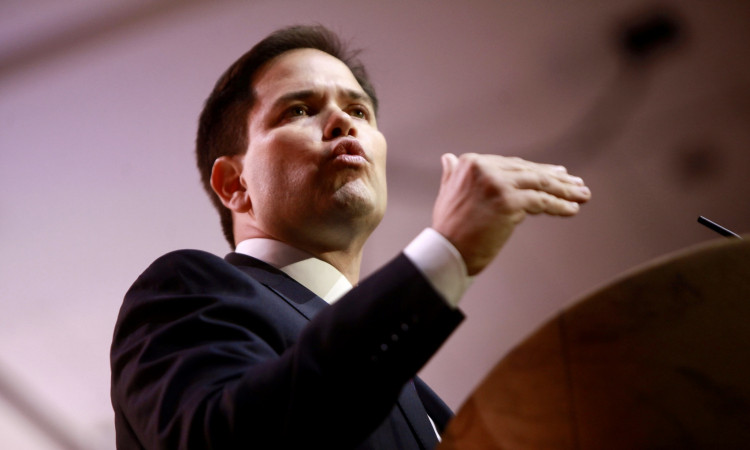The United States imposed sanctions Thursday on four judges from the International Criminal Court (ICC), escalating its confrontation with the global tribunal over its investigations into alleged war crimes by Israeli and U.S. officials. The move comes weeks after the ICC issued arrest warrants for Israeli Prime Minister Benjamin Netanyahu and former Defense Minister Yoav Gallant.
Secretary of State Marco Rubio announced the sanctions, which target judges Reine Alapini-Gansou of Benin, Luz del Carmen Ibáñez Carranza of Peru, Solomy Balungi Bossa of Uganda, and Beti Hohler of Slovenia. Two of the judges were involved in authorizing the arrest warrants for Netanyahu and Gallant, while the others played roles in previous ICC probes concerning alleged abuses by U.S. forces in Afghanistan.
"As ICC judges, these four individuals have actively engaged in the ICC's illegitimate and baseless actions targeting America or our close ally, Israel," Rubio said in a statement. "The ICC is politicized and falsely claims unfettered discretion to investigate, charge, and prosecute nationals of the United States and our allies."
The U.S. sanctions will freeze any assets the judges may hold in U.S. jurisdictions and restrict their financial dealings with American entities. The ICC, based in The Hague, swiftly condemned the action. "These measures are a clear attempt to undermine the independence of an international judicial institution," said court spokesperson Fadi El Abdallah.
Judge Reine Alapini-Gansou previously served on the pre-trial chamber that approved the Netanyahu warrant and had earlier backed the 2021 investigation into Israeli actions in the Palestinian territories. Alapini-Gansou was also part of the panel that issued a warrant for Russian President Vladimir Putin in 2023, a move that led Moscow to issue a retaliatory warrant for her arrest.
Judge Hohler, elected in 2023, faced objections from Israel due to her prior work in the ICC prosecutor's office. Hohler stated last year that she had never worked on matters involving the Palestinian territories during her tenure as a prosecutor.
Ibáñez Carranza and Bossa, both appellate judges, have presided over ICC cases involving Israeli interests. Neither the United States nor Israel is a member of the ICC and neither recognizes its jurisdiction.
The ICC's actions have reignited long-standing U.S. hostility toward the court. The Trump administration previously sanctioned the ICC's former chief prosecutor and other officials during its first term over investigations into U.S. conduct in Afghanistan. Those measures were lifted by the Biden administration in 2021.
Now back in power, the Trump administration is reviving its opposition to the court. Rubio pledged continued resistance: "The United States will take whatever actions we deem necessary to protect our sovereignty, that of Israel, and any other U.S. ally from illegitimate actions by the ICC."
Human rights advocates condemned the sanctions. Liz Evenson, international justice director at Human Rights Watch, said the measures "aim to deter the ICC from seeking accountability amid grave crimes committed in Israel and Palestine." She added: "U.S. sanctions on ICC judges are a flagrant attack on the rule of law at the same time as President Trump is working to undercut it at home."
In February, the U.S. placed ICC chief prosecutor Karim Khan on its list of "Specially Designated Nationals," barring him from doing business with Americans. Khan has since stepped aside pending an investigation into unrelated allegations of sexual misconduct.






